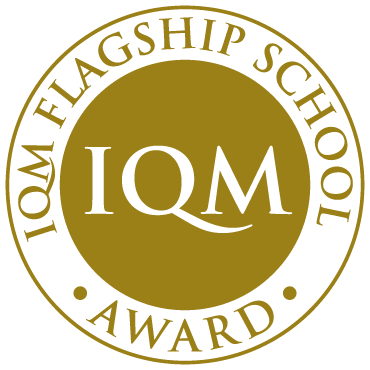History
At Babington Academy, our history curriculum helps students to explain the world as it is by exploring the world as it was — in an engaging, challenging, and ambitious way.
The curriculum is built on developing Respect for the complexity of the past and the people who shaped it. Students learn to recognise different perspectives, to appreciate how societies have evolved, and to value the diversity of human experiences. This understanding supports thoughtful, reflective learners who can connect past events to the modern world and approach GCSE History with curiosity and empathy.
We nurture Ambition by encouraging our students to see themselves as Citizen Historians — active participants in understanding the world and their role within it. Through studying history, they are inspired to think critically, challenge assumptions, and aspire to create a more informed and fair society.
Our curriculum is designed to be representative of the past’s diverse voices and experiences, ensuring that all students can see themselves reflected in what they study. This inclusivity builds appreciation and a sense of belonging within our community.
Finally, we cultivate Resilience by helping students embrace the challenges of historical study — analysing sources, forming arguments, and learning from mistakes. By developing perseverance and intellectual independence, students gain the confidence to think deeply, express themselves with clarity, and apply their learning beyond the classroom.
Topics studied at KS3
Year 7
| Enquiry Question | Key Focus | Disciplinary Concept |
| Which ancient civilisation was the most important? | Exploring early civilisations and their legacies. | Chronology, Importance |
| Why did Medieval England change between 927 and 1087? | Understanding how conquest and leadership shaped Medieval England. | Change and Continuity |
| Could Medieval Monarchs do what they wanted? | Investigating power and authority in Medieval England. | Significance |
| Was the life of a peasant in the 14th century all doom and gloom? | Exploring life and society in the Middle Ages. | Cause and Consequence |
| Why did Christianity break up England? | Understanding the English Reformation. | Sources and Evidence |
Year 8
| Enquiry Question | Key Focus | Disciplinary Concept |
| Was the Industrial Revolution really Liberty’s Dawn? | Experiencing the changes of industrial Britain. | Interpretations |
| How did the police fail the women of Whitechapel? | Investigating crime and policing in Victorian London. | Sources and Evidence |
| How did enslavement impact enslaved people? | Understanding the human impact of slavery. | Cause and Consequence |
| Was the British Empire devastatingly powerful? | Exploring the scale and impact of empire. | Change and Continuity |
| How did two bullets cause the bloodiest century in European history? | Investigating the causes of World War I. | Causation |
Year 9
| Enquiry Question | Key Focus | Disciplinary Concept |
| What were 19th-century campaigners fighting for? | Exploring social and political reform movements. | Causation and Evidence |
| Why did Germany turn to a dictator? | Understanding the rise of Hitler and the Nazis. | Significance |
| How and why was the Holocaust able to happen? | Investigating the causes and consequences of genocide. | Interpretations and Evidence |
| What have we learnt from the Holocaust? | Reflecting on memory, responsibility, and legacy. | Interpretations |
| How did the events of the 20th century disturb the world order? | Understanding conflict and change in the modern world. | Similarity and Difference |
History at KS4
GCSE Edexcel History 9-1
Year 10
| Unit | Focus Area | Assessment Link |
| Elizabeth I: Queen, Government and Religion | Power, politics, and faith in Tudor England. | Paper 2 – British Depth Study |
| Elizabethan Society and Challenges at Home and Abroad | Exploration, culture, and conflict. | Paper 2 – British Depth Study |
| Medicine Through Time: 1250–1750 | Developments in medicine and public health. | Paper 1 – Thematic Study |
| Medicine Through Time: 1750–Present | Scientific advances and modern medicine. | Paper 1 – Thematic Study |
| Medicine Through Time: Historic Environment – The Western Front | Warfare, medicine, and innovation. | Paper 1 – Historic Environment |
Year 11
| Unit | Focus Area | Assessment Link |
| Cold War Crises and the End of the Cold War | Global tensions and diplomacy, 1945–1991. | Paper 2 – Period Study |
| The Civil Rights Movement and Social Change in the USA | Struggles for equality and justice. | Paper 3 – Modern Depth Study |
| US Involvement in Vietnam | Conflict, protest, and public opinion. | Paper 3 – Modern Depth Study |
| Reactions to Vietnam and Revision | Evaluating impact and preparing for exams. | All Papers |
Exams
Paper 1 - 1 hour 20 minutes
Paper 2 - 1 hour 50 minutes
Paper 3 - 1 hour 30 minutes
Helping Your Child With Homework
For all humanities subjects we would encourage you to support students to read, listen or watch the news daily so they are aware of current events. We will give lists of any television programmes or series which support topics being undertaken in lessons as and when appropriate.
Students would benefit from visiting any local or national museums and exhibitions to develop their historical knowledge. We would encourage students to read around the subjects they are being taught including fiction books.







 ↑
↑



